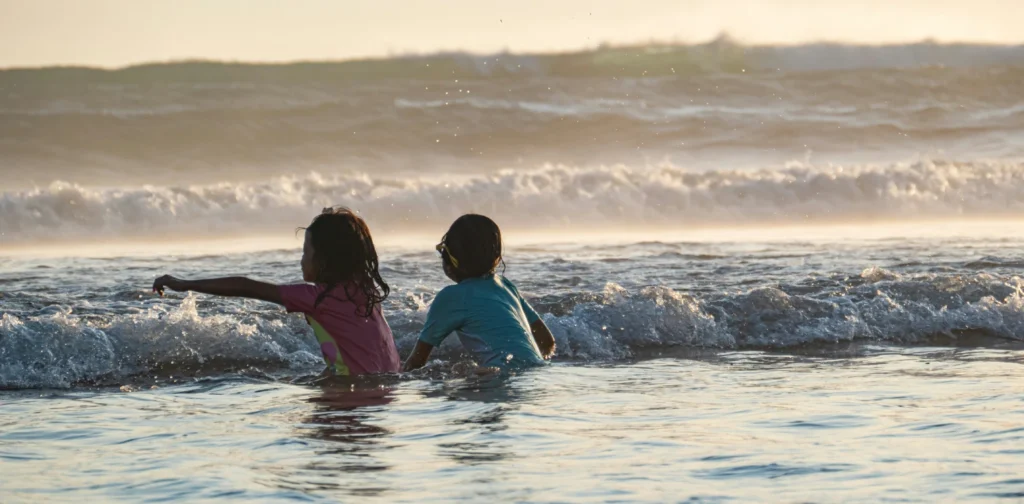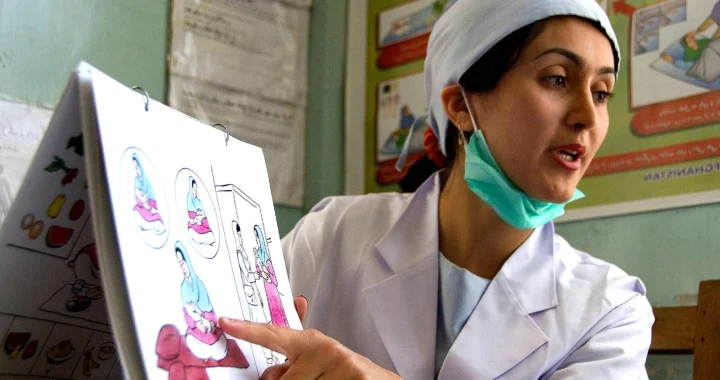Protecting Children in Indonesia with Child-Focused Climate Change Interventions

Photo: Nicholas Loh on Unsplash.
The kids are our future. However, the impacts of climate change and other crises have disrupted the lives and future of children in Indonesia and worldwide. The “Climate Landscape Analysis for Children” report published by the Ministry of Environment and Forestry of Indonesia and UNICEF reveals significant gaps between policies, regulations, planning, and child-focused climate actions.
How Climate Change Affects Children in Indonesia
According to the UNICEF’s Children’s Climate Risk Index, Indonesia ranked 46th out of 163 countries in terms of children’s vulnerability to climate change. Children in Indonesia are highly vulnerable to environmental shocks and extreme weather events related to climate change. For instance, most children in Indonesia are exposed to air pollution. Meanwhile, an estimated 28 million children are at risk of coastal flooding, and 15 million are exposed to heatwaves.
Furthermore, a report by UNICEF titled “The climate crisis is a child rights crisis” revealed that beyond climate change, children in Indonesia are also highly susceptible to vector-borne diseases, such as dengue fever and malaria. These impacts can lead to a prolonged domino effect that threatens children’s growth, security, and livelihoods.
The climate crisis also deprives children of fundamental rights, such as education, healthcare, access to clean water, and nutritious and safe food, affecting their health, wellbeing, and future.
Gaps Between Policies and Actions
Children, along with women, people with disabilities, older people, and Indigenous Peoples, are disproportionately impacted by the climate crisis. The Climate Landscape Analysis for Children (CLAC) report found that many policies, regulations, and plans in the social sector in Indonesia have been overlooking the impacts of climate change and do not include child-focused interventions. Therefore, the report emphasizes the urgency of improving child-focused policies and climate programs.
“The right of every child to grow up in a healthy environment is increasingly threatened by the severe impacts of climate change across the world and here in Indonesia,” said Maniza Zaman, UNICEF Indonesia Representative. “It is imperative to educate children about climate change, to engage them in creating solutions, and to put them at the center of all climate action.”
Strategy Recommendations
The Government of Indonesia has implemented various programs and policies in response to the climate crisis. Meanwhile, grassroots organizations and communities have also implemented numerous climate actions in their respective capacities and scales. However, the lack of child-focused interventions underscores the urgency to accelerate efforts to protect children in Indonesia against the impacts of climate change, which are expected to worsen in the coming years.
UNICEF calls on governments, the private sector, and other relevant stakeholders to make essential services to strengthen children’s resiliency and ability to adapt to climate change and advance efforts to reduce greenhouse gas emissions in various sectors.
Meanwhile, the CLAC report recommends six strategies in climate-related policies and programs to meet children’s needs:
- Integrate children’s rights in climate policies, programs, and funding decisions.
- Improve collaboration among the government, civil society, private sector, and communities, including children, to address climate impact in policies and programs related to climate, environment, and energy issues, as well as the social sector.
- Generate knowledge and evidence about how climate change affects children’s health and wellbeing.
- Increase the resilience of social services and facilities to withstand climate disruptions and continue serving children and families.
- Ensure children and young people are educated about climate change and create opportunities for them to get involved in climate and environmental actions.
- Improve climate data collection and early warning systems.
Translator: Kresentia Madina
The original version of this article is published in Indonesian at Green Network Asia – Indonesia.

Co-create positive impact for people and the planet.
Amidst today’s increasingly complex global challenges, equipping yourself, team, and communities with interdisciplinary and cross-sectoral insights on sustainability-related issues and sustainable development is no longer optional — it is a strategic necessity to stay ahead and stay relevant.


 Looking into the Global Midwife Shortage
Looking into the Global Midwife Shortage  Reframing Governance in the Era of Water Bankruptcy
Reframing Governance in the Era of Water Bankruptcy  Strengthening Resilience amid Growing Dependence on Space Infrastructure
Strengthening Resilience amid Growing Dependence on Space Infrastructure  Indian Gig Workers Push Back Against 10-Minute Delivery Service Strain
Indian Gig Workers Push Back Against 10-Minute Delivery Service Strain  Call for Governance: Grassroots Initiatives Look to Scale Efforts to Conserve Depleting Groundwater
Call for Governance: Grassroots Initiatives Look to Scale Efforts to Conserve Depleting Groundwater  Integrating Environment, Climate Change, and Sustainability Issues into Education Systems
Integrating Environment, Climate Change, and Sustainability Issues into Education Systems